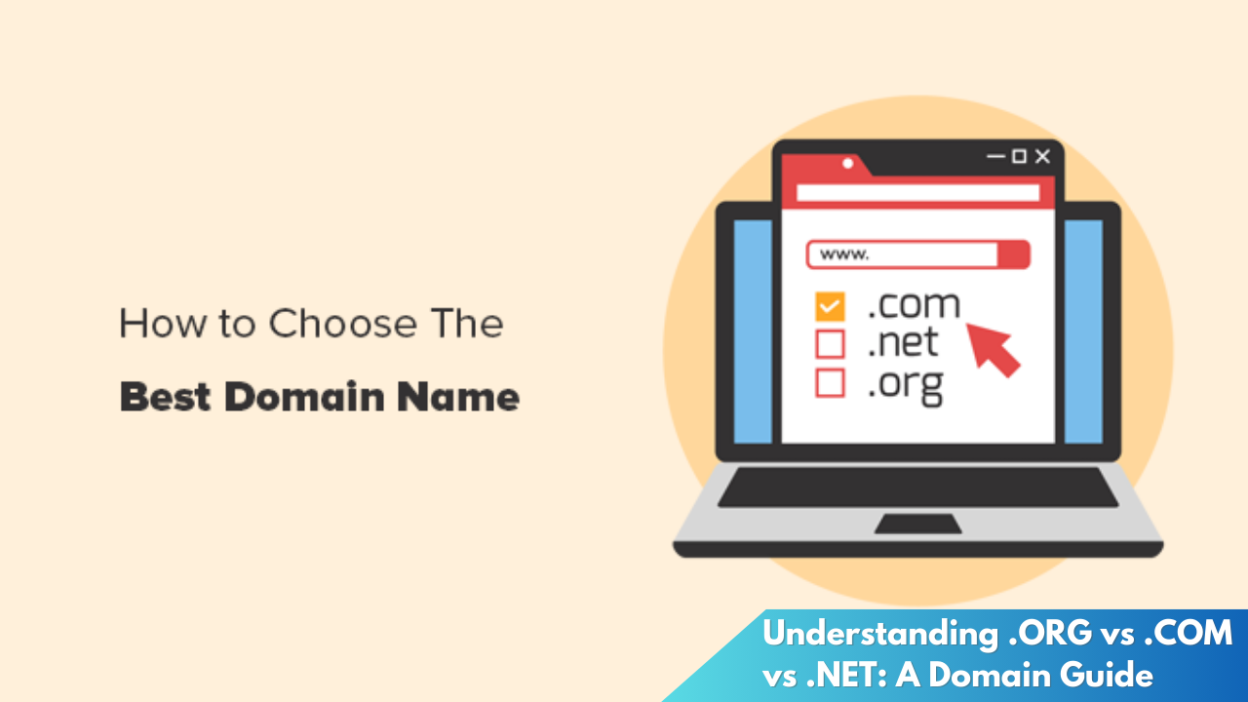In the expansive world of the internet, domain names play a pivotal role in defining an online presence. Among the plethora of domain extensions available, .ORG, .COM, and .NET stand as some of the most recognized and widely used. Each serves a distinct purpose, catering to different types of organizations and individuals. Understanding the nuances between these domain extensions can help in making informed decisions when establishing or rebranding an online presence. This guide delves into the key differences between these domains and offers insights for selecting the most suitable one.
Key Differences Between .ORG, .COM, and .NET Domains

The .ORG domain extension is traditionally associated with organizations, particularly non-profit entities. Established in 1985, it has become a go-to for charities, advocacy groups, and cultural institutions seeking to convey trust and community-focused values. Although originally intended for non-commercial use, .ORG is now open to any registrant. However, its heritage as a non-profit identifier remains a strong association, often lending credibility to mission-driven organizations.
In contrast, the .COM domain is synonymous with commercial enterprises and is the most prevalent domain extension globally. Also introduced in 1985, .COM was originally meant for commercial businesses, but over time, it has become a default choice for all types of websites. Due to its widespread recognition and memorability, .COM domains are highly sought after and can sometimes be more expensive or challenging to acquire, particularly for popular or generic names.
The .NET domain, short for “network,” was also launched in 1985 and was initially intended for network-based technologies, such as internet service providers and infrastructure companies. Over time, it has broadened its appeal and is now a viable alternative when .COM is not available. While .NET is not as universally recognized as .COM, it still conveys a level of professionalism and technical expertise, making it popular among tech companies and online services.
Choosing the Right Domain for Your Online Presence

Selecting the appropriate domain extension depends largely on the nature and goals of your online presence. For non-profit organizations or groups focused on community services, .ORG remains a powerful choice due to its strong association with trust and altruism. It can signal to visitors that the organization prioritizes public benefit over profit, aligning with the expectations of donors and supporters.
For businesses seeking a broad reach and commercial success, .COM is often the preferred option. Its global recognition and reputation make it an ideal choice for companies aiming to establish a strong brand identity and reach a wide audience. However, due to its popularity, securing a .COM domain might require creativity or investment, especially for common or competitive names.
When .COM and .ORG are not suitable or available, .NET offers a versatile alternative, particularly for technology-related entities. Its association with network services and technical expertise can enhance the credibility of tech startups, developers, and online platforms. Additionally, .NET can be an excellent choice for companies aiming to highlight their role within the digital or tech sectors, providing a memorable and relevant domain identity.
In the digital age, a domain extension is more than just an address; it is a vital part of branding and identity. Each domain extension—.ORG, .COM, and .NET—carries its own connotations and history, influencing how a website is perceived by its audience. As such, choosing the right domain extension is a crucial decision that can impact visibility, credibility, and the overall success of an online presence. By understanding the distinctions and intended uses of each extension, individuals and organizations can make informed choices that align with their missions and market goals.



